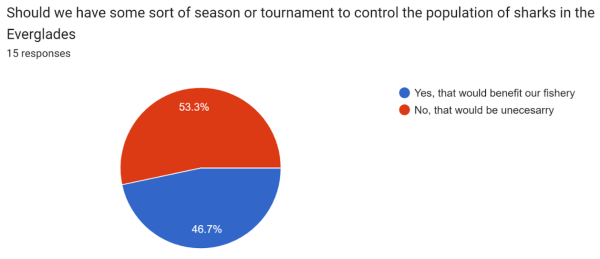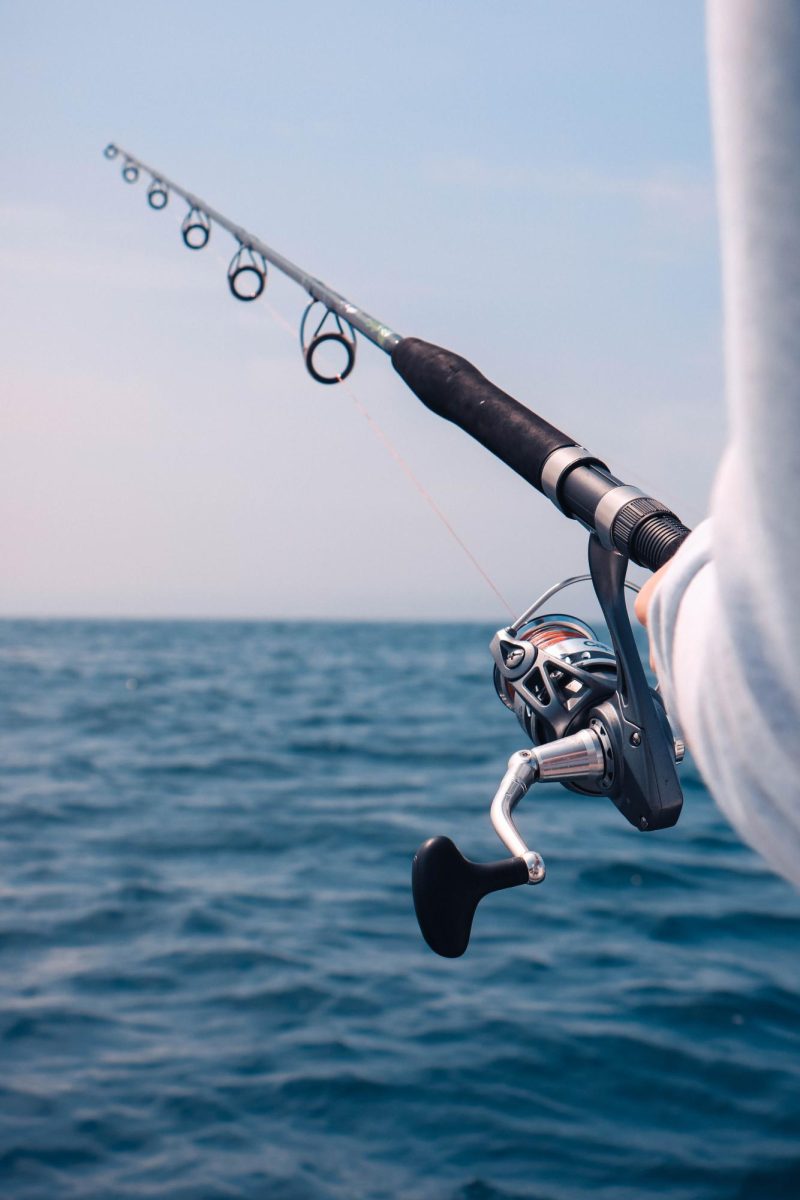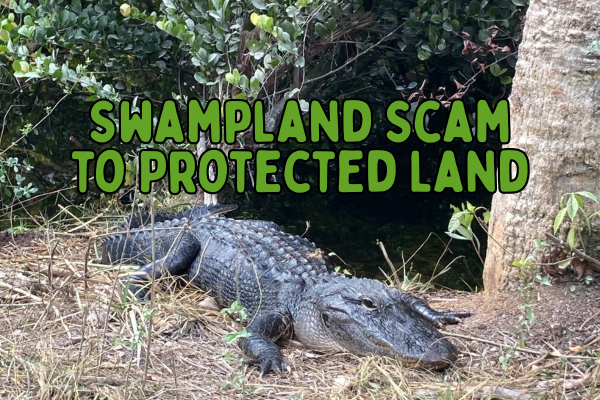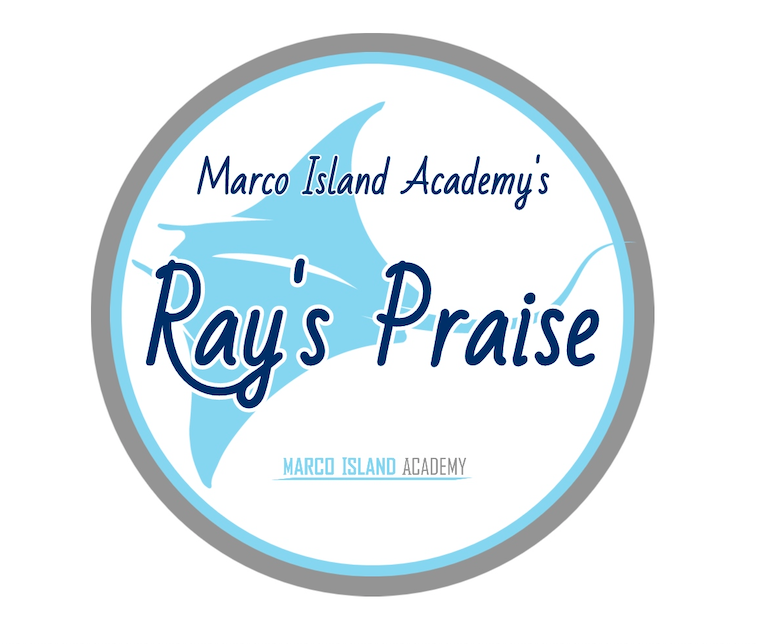For years, fishing conservation has been a topic of heavy debate in our area. With one of the most unique and diverse environments on the planet, the Florida Everglades serves as an ideal location for fishing. One of the most unique and diverse environments on the planet, the mangroves and reefs of the Florida Everglades provide ideal fishing opportunities.
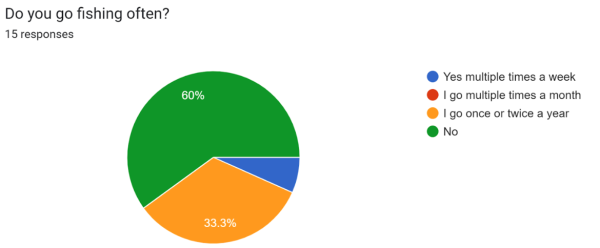 The Everglades are facing many problems when it comes to conservation. It is important to conserve this unique ecosystem for generations to come. When asked how frequently they fished, students were split between rarely fishing and going a few times yearly. Although not many students contributed to the poll, it still shows that the average student isn’t super interested in fishing.
The Everglades are facing many problems when it comes to conservation. It is important to conserve this unique ecosystem for generations to come. When asked how frequently they fished, students were split between rarely fishing and going a few times yearly. Although not many students contributed to the poll, it still shows that the average student isn’t super interested in fishing.
Most students agreed they were for a better environment, but were unsure about conservation. Based on this information it is reasonable to conclude that students are mostly uneducated on conservation in the 10,000 islands. In addition to conversation, students were also asked their opinions on bettering the environment. The results revealed that students seemed largely involved in the local environment, with almost every student indicating that they are environmentally conscious.

Students were asked whether they had noticed a decrease in the fish they had caught recently. Factors such as overfishing, pollution, and poor fishing tactics have contributed to an overall decline in fish populations. Of the students involved in fishing, most noticed an increased difficulty in catching fish. It is important to keep our fishery clean, creating a healthy environment for us to live in. Generations from now, individuals should be able to enjoy the same fishing as we do now, which will only be possible if use sustainable fishing practices.

One of the first issues within the fishing industry is overpopulation. One species in particular, the Goliath Grouper, has experienced a population boom since its protection in the ‘90s. At upwards of 800 pounds, these car-sized fish can be found in mangrove estuaries in their early years until they move onto nearshore wrecks and reefs. Though previously over-fished, the groupers have made a remarkable comeback and are now considered to be overpopulated. Perhaps if the Florida Fish and Wildlife Conservation Commission opened a regular season for the Goliath Grouper, their populations could be reduced to sustainable numbers. Students were closely split between protecting the groupers and opening a hunting season. Based on the student’s large interest in the environment, it is reasonable to conclude that many answered solely from the keyword “protect”. Although some students may believe that they should protect the species, limiting the overpopulation of the Goliath Grouper would be beneficial to local ecosystems. It is also likely that the students who believe in the opening season of the groupers have experienced the effects while fishing. The majority of students who answered that an open season for grouper would be beneficial, also answered that they fish often.
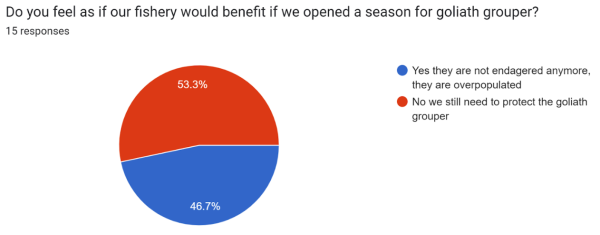
Another topic of debate regarding fishing is Redfish. Redfish have been an important part of the game fishing industry in the 10,000 islands, an industry that our economy relies heavily on. This raises the question “Should Redfish have a closed fishing season?” The FWC has opened a year-round fishing period for Redfish in certain areas of the Gulf, including Southwest Florida. Most students believe that a year-round season for the fish is not sustainable, while few believe otherwise. This indicates that the FWC should consider shortening the season for Redfish to protect their populations before they become endangered.

Finally, another major issue seen by fishermen is shark overpopulation. In the Everglades, many people have experienced problems with sharks while fishing. Guides who rely on fishing for income often face concerns about sharks stealing their catches. Students were asked if they think shark overpopulation is an issue in the Everglades, and the majority agreed that they were unaffected by sharks while fishing. Only a few students noticed a problem with the number of sharks. To tackle the shark problem, one solution would be a shark fishing tournament. Students were mostly divided on this topic, concluding that they were unsure about this topic. With many environmentalists at MIA, topics regarding potentially harming animals seem to be controversial. With conservation in mind, it may be hard for people to accept kill tournaments.
